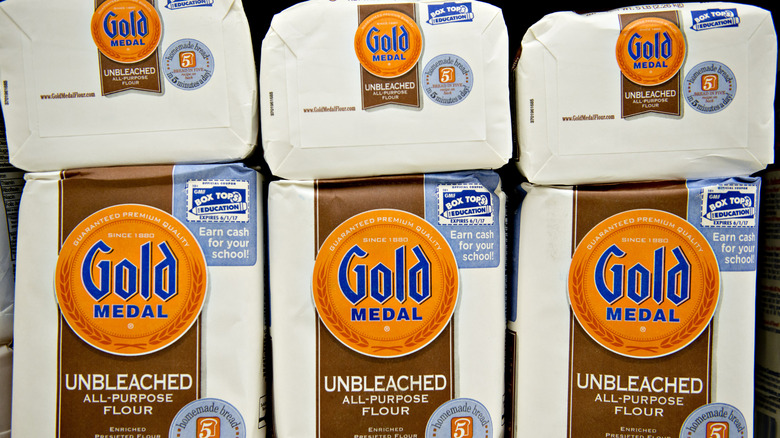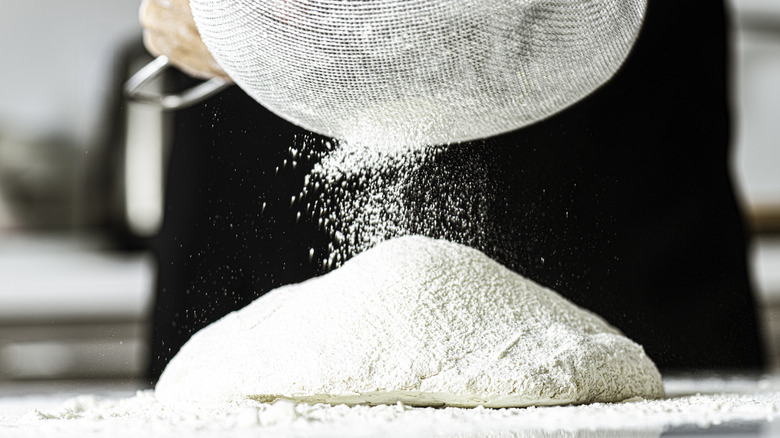Gold Medal Flour Is Being Recalled Due To Possible Salmonella Contamination
Spring-cleaning the pantry might need to come a little earlier due to a recent announcement from General Mills. Under guidance from the Food and Drug Administration, Gold Medal has voluntarily recalled select offerings of its unbleached and bleached all-purpose flour. The nationwide decision impacts bags of 2-lb, 5-lb, and 10-lb flours that have a best by date of March 27, 2024, and March 28, 2024. The voluntary recall comes in response to potential salmonella contamination. Although General Mills said in an April 28 statement (via Food Business News) that Salmonella Infantis "is killed by heat through baking, frying, sautéing, or boiling products made with flour," that scenario does not protect against other instances where raw flour can come into contact with surfaces, utensils, or hands. Consumers are urged to stop using and dispose of the potentially contaminated flour products.
Earlier this year, the CDC issued a notice that several people were hospitalized during a multi-state salmonella outbreak that was allegedly linked to contaminated flour. During the investigation, the flour was determined as the common link, specifically mentioning raw dough or batter. Although the exact brand of flour was not mentioned in that report, the announcement urged consumers to look for heat-treated flour and to cook food fully , as heat can kill the bacteria.
Salmonella can present as digestive issues, fever, and abdominal pain. If infection is suspected, it's best to seek medical attention and stop consuming the potential food culprit.
How can flour be infected by salmonella?
Food recalls can impact many industries, from fruits and vegetables to packaged goods. The FDA and the CDC offer consumers guidance regarding potentially harmful products. While the salmonella traceback to eggs or poultry might be a straight line, following the trail back to flour being the culprit can be a little less streamlined.
In a Live Science article, associate professor and food safety specialist at North Carolina State University Benjamin Chapman discussed salmonella outbreaks in dry food. Chapman said that subjecting salmonella to hot, dry temperatures could preserve the microbes, which makes dry heat a more persistent environment for potential contamination. Whether flour is impacted at the time of the harvest or during the manufacturing process may not matter. The dry, heated environment can make the bacteria in the flour more resistant.
Although it may not be possible to smell or see the potential bacteria, the CDC recommends simple methods to protect against the spread. The four steps of "clean, separate, cook, and chill" are meant to help consumers use better practices within the kitchen. Although consumers must rely on the diligence of the production chain, everyone can do their part with safer handling measures.

